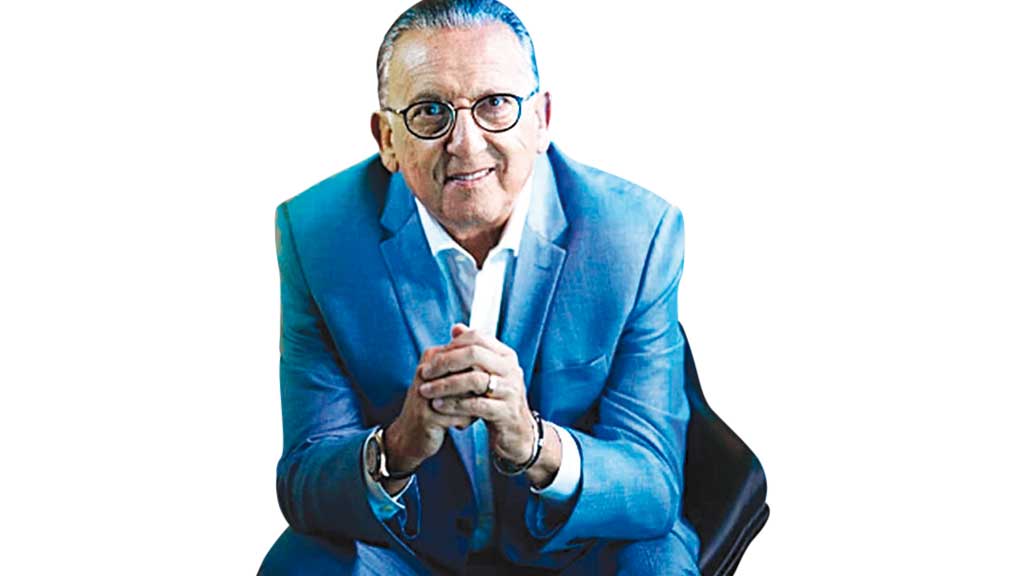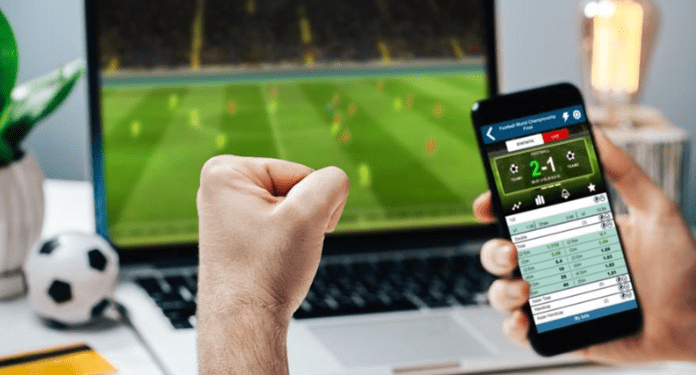The prospects for the sports betting sector in 2023 are extremely positive, with the forecast reaching BRL 12 billion in transactions in Brazil. Sports predictions are very successful in the country, with football being the flagship for several online bookmakers.
However, despite high expectations, the challenge now is the regulation of the betting industry in general and actions to inhibit match manipulation – a problem that has been highlighted in recent months.
IstoÉ Dinheiro recently published a piece of news detailing how big this sector is in Brazil and how it can generate opportunities for the country’s growth, also highlighting the obstacles to be overcome to reach a safe level for the betting market.
Read the full article on sports betting
Of the 40 clubs in Series A and B of the Brazilian Football Championship, 37 are sponsored by online sports betting sites. It means that 92.5% of the teams in the most popular sport in the country are financed by companies in the sector, which pay up to R$ 30 million per year to a single team.
It is unprecedented in the history of national sport. There are fights for spaces on advertising signs around the fields. More than that, the platforms sponsor organized crowds, championships in various sports and have marketing actions on Big Brother Brasil (BBB), on electric trios and Carnival blocks.
The ground was conquered in just over four years of operation in the country, since the decree that authorizes the exploration of digital sports betting houses is from the end of 2018. Here, this market moved BRL 9.8 billion last year and is projected to reach R$ 12 billion this year, according to BNL Data consultancy, specialized in the segment. Globally, in 2022 it was US$ 83.6 billion, according to a report by Grand View Research, a multinational corporate data analysis company. And it is expected to grow at an average annual rate above 10% from 2023 to 2030, reaching US$ 182.1 billion.
This escalation has more than one explanation. The Grand View study points out that one of them is the increasingly secure and widespread internet infrastructure. Another is the influence of major sporting events around the world, such as the FIFA World Cup, the UEFA Champions League and the NFL (American football league).
A third front is accompanied by a major challenge: the regulation of the sector. It has occurred in several countries, but in Brazil it has been blocked since the enactment of Law 13,756, of December 12, 2018, signed by then President Michel Temer, which authorized the lottery modality called “fixed odds bets”. This is where online sports betting falls into place. It is determined in this legislation that the Ministry of Economy (renamed Finance) would regulate the sector within a period of up to four years. It expired on December 12, 2022. And so far nothing.

The Jair Bolsonaro administration started debates on the subject, but ran into pressure from conservative wings with strong influence during his administration, such as evangelicals. Luiz Inácio Lula da Silva’s team plans to resume the conversation, but with another motivation: the recent allegations of game manipulation (see the box Result of games under suspicion, at the end of the text). At the same time, Bill 442, of 1991, is being processed in the National Congress. It was approved by the Chamber last year and is being analyzed by the Senate. This device is more comprehensive, as it legalizes games of chance such as casinos, bingos and even jogo do bicho.
The regulation or the advancement of PL 442/91 would bring benefits to the sector, according to specialists and operators. For lawyer Fernando Gonçalves, founding partner of the FGo Legal office and a specialist in Business and Economic Law, the vacuum of legislation opens space for speculation. “It is necessary to speed up the debate, because nobody knows the real size of this market”, he said. “There are tens of billions of reais being moved.
Where is the tax collection on this?” The answer is anyone’s guess. Today, to operate in Brazil, bookmakers have to be licensed offshore outside the country and make daily remittances abroad of the income they receive from betting.
The only tax collected is the IOF (Tax on Financial Operations). In international transfer operations of the same ownership and acquisition of currency in cash, the rate is 1.1%. The DINHEIRO report asked the Ministry of Finance about how much has been collected with IOF from bookmakers since 2018. The answer: “There is no way to segregate, in the collection of the tax, the specific item requested in the demand.” Pasta did not say how it supervises the performance of these companies and confirmed that the regulation is under study.
According to the Federal Revenue, there are currently 17,252 bingo halls in Brazil — which operate with government or court authorization —, 264 places for horse racing betting and 484 for gambling and unspecified betting. Online sportsbooks are usually registered abroad. If there is any complaint or conflict between bettors and bookmakers, forget about consumer protection entities such as Procon.
According to lawyer Fernando Gonçalves, these possible misunderstandings, in principle, are resolved between the parties. If there is no peaceful resolution, an overseas court must be sued by the claimant. “Because the bet is actually being made out there”, said the expert, noting that he does not see this type of problem yet because “the operators are very serious” and “do not want to create an image of insecurity” for bettors.
A considerable part of the sector’s success in such a short time in Brazil, and which justifies the millionaire investments of these companies in marketing, is the high incidence of premium payments. The biggest bookmakers in the country have 7 million registered customers. Almost everyone has already won a bet made on websites and apps. It doesn’t mean they got rich. For small bets, small prizes.
The payout — percentage of the money bet that goes back to the bettors, with a calculation made to define the profit margin of the bookmakers — is between 90% and 98%. For comparison purposes, Caixa pays 43.35% of the Mega Sena revenue as a gross premium. A good margin for the operator, but it contemplates few winners, with a high value. According to market surveys, Brazil has the potential for 30 million gamblers.
Moving this gear consequently leads to high investment in advertising. This includes associating brands with celebrities, to give credibility to the sector and differentiate itself from competitors. The narrator Galvão Bueno (Pixbet), the best Brazilian player in activity, Vini Jr. (Betnacional), from Real Madrid, left-back Marcelo (SportingBet) and former footballers Ronaldo Fenômeno (Betfair) and Adriano Imperador (Betpix365) are some of the faces that appear in the advertising of bookmakers.
A study by the data science consultancy Ilumeo revealed that in this race to attract bettors, Bet365 has the greatest presence in the minds of consumers. It is known by 86% of the public, followed by Betano (72%), SportingBet (72%) and Betfair (56%).

Founder and head of Science and Projects at Ilumeo and professor of brand management at USP, Otávio Freire considers the strategy of legitimizing bets through football idols to be correct. “It makes the consumer associate something he already has in his head [celebrity or institution] with what he has never seen in his life [bookmaker]”, he said. For him, the presence of these companies in sponsorships and partnerships with clubs, events and personalities will continue over the next few years.
Sponsored by seven clubs from Serie A and B of the Brasileirão, Esportes da Sorte has just signed the biggest contract in the history of Bahia. Valid until 2025, it will earn the club BRL 57 million, BRL 19 million per season. The company also closed an advertising plan with Globo’s reality show BBB 23. For the CEO of Esportes da Sorte, Darwin Filho, regulation is necessary to separate serious operators from adventurers. And it should still attract other companies that have not arrived in the country because they are waiting for greater legal security.
“The Brazilian betting market has stood out. With the regulation, investments will increase”, he said. According to him, the country is among the ten largest global markets and has the potential to be in the Top 3. “Below only the US and China”, he said.
Pixbet’s CEO, Ernildo Júnior sees the Brazilian market with optimism, despite having only been in business for four years. According to him, regulating the sector will be important for value creation. “This market will become more competitive and more challenging”, said the executive of the company that sponsors six teams in Brazil, including Flamengo and Corinthians.
The announcement of the partnership with the São Paulo club, in December last year, was made on screens in Times Square, in New York, one of the most famous advertising spaces in the world. Also in 2022, it was the first bookmaker to buy a sponsorship quota on open TV for the World Cup — valued by the market at BRL 176 million. It also established a partnership with Amazon for customers to receive betting tips via Alexa, in an investment of BRL 1.2 million for a one-year contract. Investments that yield results. “Today we are at a level of 55 bets per second at peak hours”, said Júnior.




















































